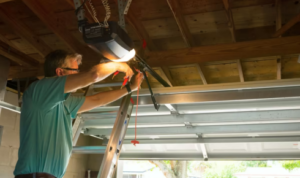
colocation data center
For businesses running websites, apps, or large systems, even a few minutes of downtime can mean lost revenue, broken trust, and chaos. That’s why many companies are moving their servers to colocation data centers—specialized facilities built for performance, security, and reliability. These spaces provide an ideal environment for hosting vital infrastructure while reducing operational headaches. But that’s just the beginning.
Meeting Growing Infrastructure Demands
As businesses scale, so does their IT demand. More data, more users, more complexity. Managing this in-house becomes overwhelming and costly. Space is limited. Power and cooling are hard to optimize. That’s where a purpose-built facility becomes invaluable.
A colocation data center offers professionally managed space where businesses can house their own hardware without the burden of maintaining the facility itself. It provides the physical resources—like power, HVAC, and racks—so businesses can focus on growth without being distracted by maintenance issues.
Enhanced Uptime with Colocation Data Center Reliability
A colocation data center is a secure, off-site facility where companies rent space for their servers and networking equipment. These centers are designed with redundancy in mind—backup power, climate control, and high-speed connectivity. The goal is simple: ensure your systems are always available.
Unlike traditional in-house server rooms, colocation centers are monitored 24/7. If something goes wrong, expert technicians are already on-site to fix it fast. That’s one reason businesses love the peace of mind that comes with using colocation. They know their data is safe, even during power outages or network disruptions when it’s hosted in a colocation data center.
Cost Efficiency Through Shared Resources
Running an enterprise-level server room takes money. You need staff, power, cooling, security, and constant upgrades. But when businesses choose a colocation data center, they tap into economies of scale.
Shared infrastructure means lower costs. You don’t have to invest in redundant systems—like backup generators or advanced fire suppression—because the colocation provider already has them. This allows businesses to spend more on innovation and less on keeping the lights on.
Improved Physical and Cyber Security
Security breaches can destroy a company’s reputation. Whether physical tampering or cyberattacks, businesses need a fortress to house their critical infrastructure.
Colocation data centers provide just that. Facilities are often equipped with biometric access, 24/7 surveillance, and secure cages or cabinets. On the digital side, they offer firewalls, monitoring tools, and layered network defenses.
Scalability Without Sacrificing Control
One of the best things about colocation is flexibility. As your needs grow, you can rent more space, power, or bandwidth. It’s a plug-and-play model that expands with your business. You’re not locked into expensive construction or time-consuming upgrades.
At the same time, you still own your hardware. That means you keep full control over configurations, updates, and data. You’re not giving up autonomy—you’re simply placing your gear in a smarter location.
Supporting Sustainability Goals
Today’s companies care about the environment. Running inefficient data rooms burns energy and increases emissions. But colocation providers often use greener practices. They optimize cooling systems, source renewable energy, and design facilities to reduce waste.
By moving into a colocation data center, businesses lower their carbon footprint without sacrificing performance. It’s a step toward smarter, more sustainable IT.
Conclusion
Reliable hosting is the backbone of any modern business. Whether you’re serving millions of users or storing sensitive client data, you need a solution that works—no matter what. That’s why companies are turning to colocation data centers. They offer stability, scalability, security, and cost savings—all while helping businesses stay focused on their mission. It’s not just about keeping servers online.








